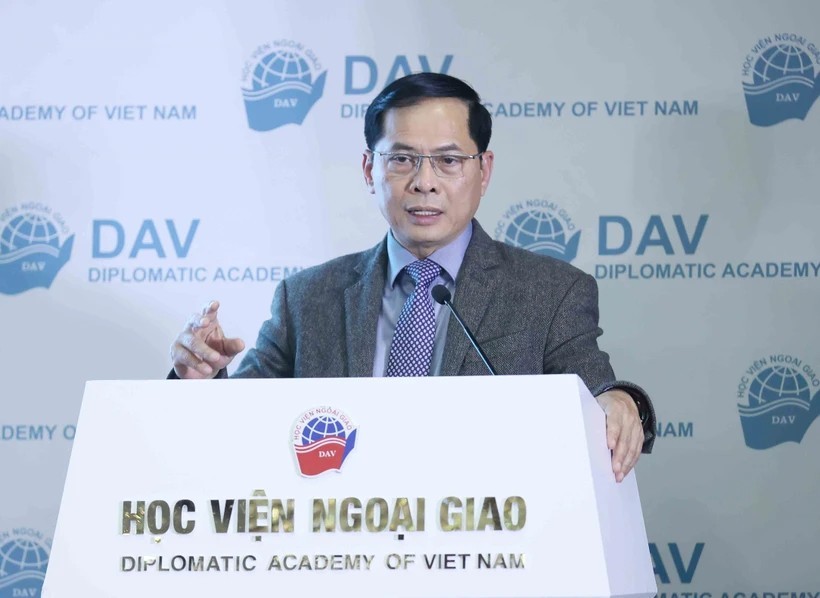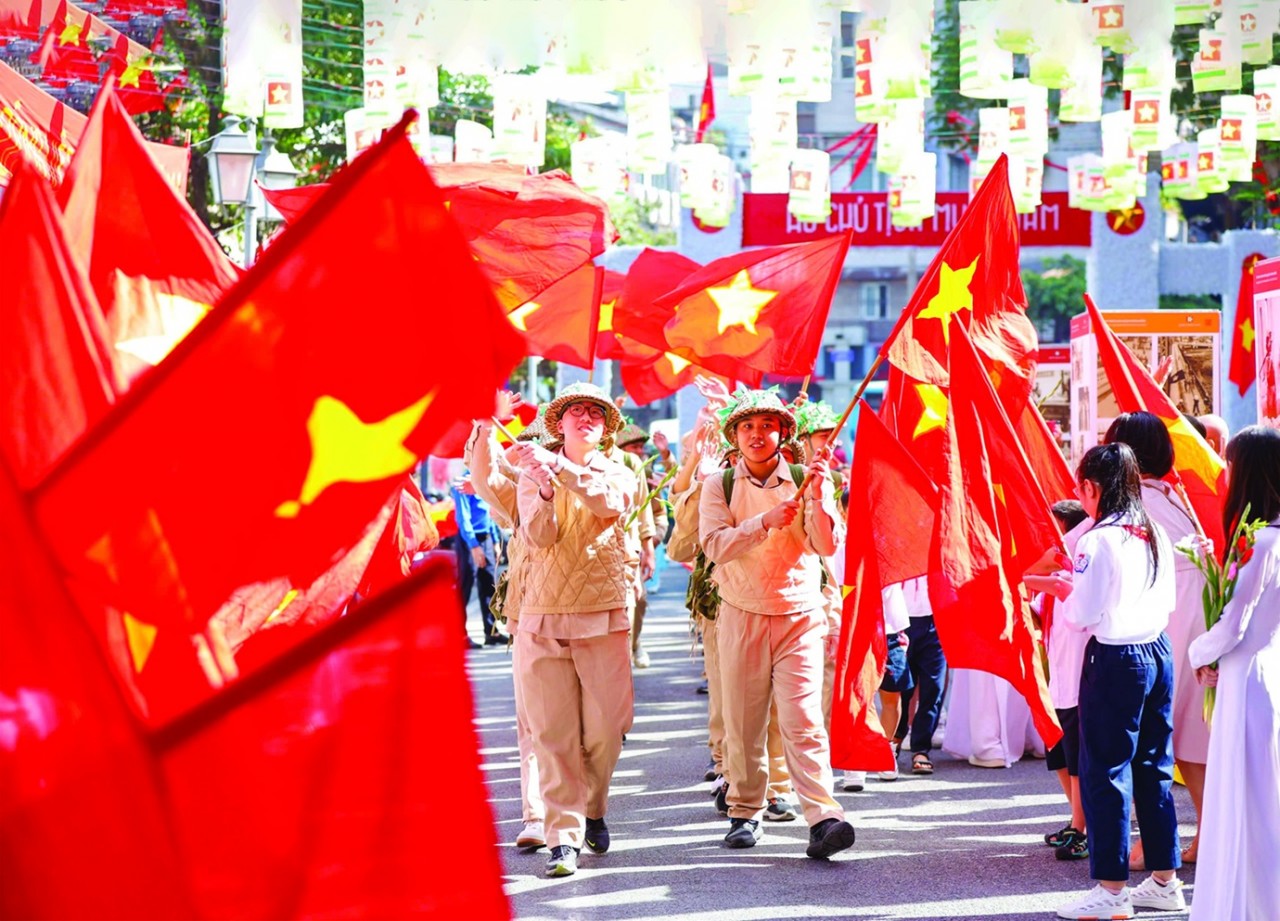Basis for Positioning the Target and Historical Opportunity to Bring the Vietnam into New Era
| Paving Way for Vietnam's Rise in New Era (Part 1) | |
| Paving Way for Vietnam's Rise in New Era (Part 2) |
Basis for positioning the New Era - The Era of Nation Rise
First, the significant achievements over nearly 80 years since the founding of the Democratic Republic of Vietnam (now the Socialist Republic of Vietnam) and 40 years of Doi Moi under the Communist Party's leadership have allowed Vietnam to accumulate the position and strength needed for breakthrough development in the next stage. Vietnam has transitioned from a poor, backward, and isolated country to a developing nation with an average income. It is now deeply and widely integrated into global politics, the world economy, and human civilization, assuming many important international responsibilities and playing an active role in key multilateral organizations and forums.
 |
| General Secretary To Lam highlighted that this pivotal moment is when Vietnam should harness all its advantages and strengths to usher in a new era—an era of nation rise. |
Independence, sovereignty, unity, and territorial integrity are maintained, ensuring national interests. The economy in 2023 is 96 times larger than in 1986. Vietnam ranks among the top 40 largest economies globally, the top 20 in trade, and the top 15 in attracting foreign investment. With diplomatic relations with 194 United Nations member countries, Vietnam has established partnerships, strategic cooperation, and comprehensive strategic partnerships with major global and regional powers. The quality of life has significantly improved, with a sharp decline in poverty rates and early achievement of the United Nations Millennium Development Goals. Political, economic, cultural, social, scientific-technological, national defense and security potentials are constantly improving, contributing to regional and global peace and stability.
Currently, the world is undergoing epochal changes, and the period from now until 2030 is critical for establishing a new world order. This period presents significant strategic opportunities, marking the final stage of the Vietnamese revolution to achieve the 100-year strategic goal under the Party's leadership, laying a solid foundation for the nation's centennial founding. While these changes bring new opportunities, they also pose significant challenges. The fourth industrial revolution, especially advancements in artificial intelligence and digital technology, offers developing and underdeveloped countries the chance to lead and develop rapidly.
The history of the Vietnamese revolution demonstrates that under the Party's wise leadership, fueled by self-reliance, national pride, and the collective strength of the people combined with the strength of the times, Vietnam has achieved remarkable feats. These include defeating powerful colonial empires and successfully undergoing renovation. Currently, the Party's will aligns with the people's aspirations to build a prosperous and happy country, successfully build socialism, and stand shoulder to shoulder with world powers.
Given these factors, now is the time to gather all advantages and strengths to usher the country into a new era of national growth, following the eras of independence, freedom, socialism building, and renovation.
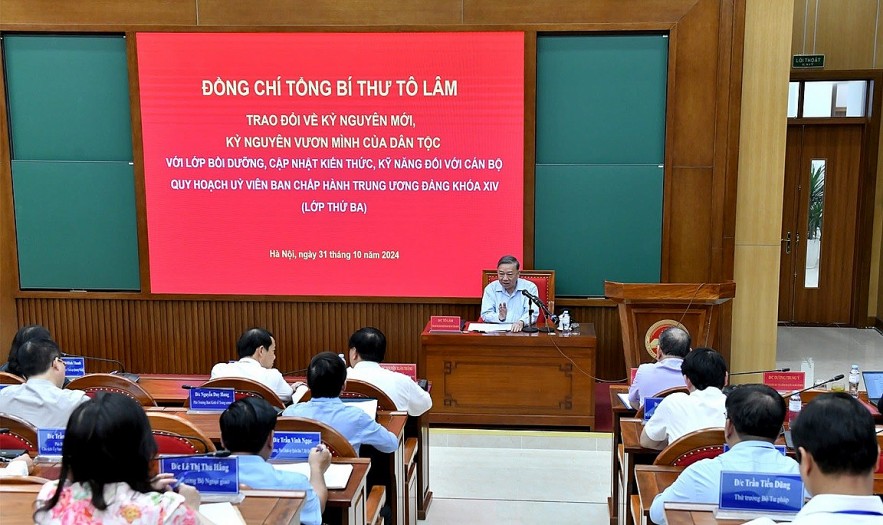 |
| General Secretary To Lam talks about the era of nation's rise. |
Historical Opportunities of the Nation’s Rise
Over the past 95 years, under the leadership of the Communist Party of Vietnam, founded and trained by President Ho Chi Minh, the Vietnamese people have experienced two glorious eras.
The first era is the period of independence, freedom, and building socialism (1930 - 1975). This era began in 1930 with the birth of the Communist Party of Vietnam, leading to the great victory of the August Revolution in 1945. It continued with significant feats in the resistance wars against invaders (1946 - 1975) and important achievements in the cause of building socialism in the North from 1954 to 1975.
The second era is the period of national reunification, innovation, and development (1975 - 2025), which began with the great victory in the resistance war against the invading American imperialists, unifying the country and bringing it to socialism in 1975. This victory created a solid foundation for the nation to embark on the renovation process under the leadership of the Party, starting with the 6th National Party Congress in 1986, leading to strong and comprehensive development across all fields. Now, Vietnam has entered the third era, the era of national growth, which began with the 14th National Party Congress, marking 40 years of innovation (1986-2026). Each era presents historical requirements that the country and its people must meet to successfully achieve their strategic goals.
 |
| The 10th plenum of the 13th Party Central Committee was held in Hanoi from September 18 to 20, 2024 (Photo: VGP/Nhat Bac). |
In the era of independence, freedom, and building socialism (1930 - 1975), Vietnam's vital goal was to abolish the oppressive and exploitative regimes of colonialism and feudalism, achieve national independence, and establish a new social order. This strategic goal required the broadest gathering and the strongest promotion of the strength of the great national unity bloc, combined with the strength of the times, to overthrow the domination of imperialism and feudalism, secure independence and freedom, and lay the foundational elements of socialism. Under the Party's correct leadership, the Vietnamese people demonstrated exceptional patriotism and revolutionary heroism, meeting historical demands and achieving strategic objectives.
In the era of national reunification, innovation, and development (1975 - 2025), Vietnam's top goal was to overcome poverty and backwardness, improve living standards, and establish a worthy international position. This strategic goal required comprehensive and synchronous innovation across all areas of social life, promotion of the country's industrialization and modernization, and proactive integration into the global community. Each era has set a historical requirement that Vietnam and its people have met with resilience and determination, paving the way for the current era of national growth.
Over nearly 50 years since national reunification and 40 years of implementing the Doi Moi process, Vietnam has successfully met historical demands. The country has transitioned from being poor and underdeveloped to achieving significant historical milestones, creating new positions, strengths, and international prestige.
These historical achievements, gained through two eras of persistent struggle and creative labor, have laid the foundation for Vietnam to enter the Third Era: the Era of Nation's Rise, which began with the 14th National Congress of the Party. This era is marked by development and prosperity under the Party's leadership, aimed at successfully building a socialist Vietnam. The destination of this era is a prosperous, strong nation with a socialist, democratic, fair, and civilized society on par with global powers. The top priority in this New Era is to achieve the strategic goals set for 2030, where Vietnam aims to become a developing country with modern industry and high average income, and by 2045, to become a developed socialist country with high income.
The goal of the Third Era is to elevate and integrate the objectives of the two preceding eras, reflecting the qualitative progression of national independence, socialism, and the dialectical movement of Independence - Freedom - Happiness. This New Era presents special historical requirements, demanding that the entire Party, the entire populace, and the entire army deeply understand, remain determined, and act decisively to realize the aspiration of developing a prosperous and happy country.
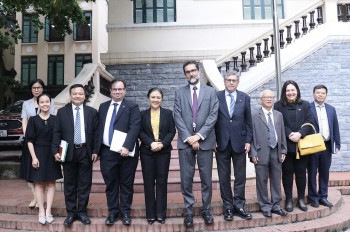 | Ambassador Nguyen Phuong Nga: A New Era of People-to-People Diplomacy Ambassador Nguyen Phuong Nga is the first female Deputy Minister of Foreign Affairs of Vietnam and President of the Viet Nam Union of Friendship Organizations ... |
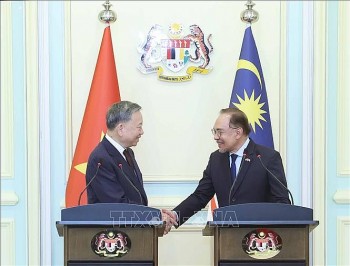 | Vietnam, Malaysia Look Forward to New Era of Development General Secretary of the Communist Party of Vietnam (CPV) To Lam and his spouse successfully concluded the official visit to Malaysia at the invitation of ... |
Recommended
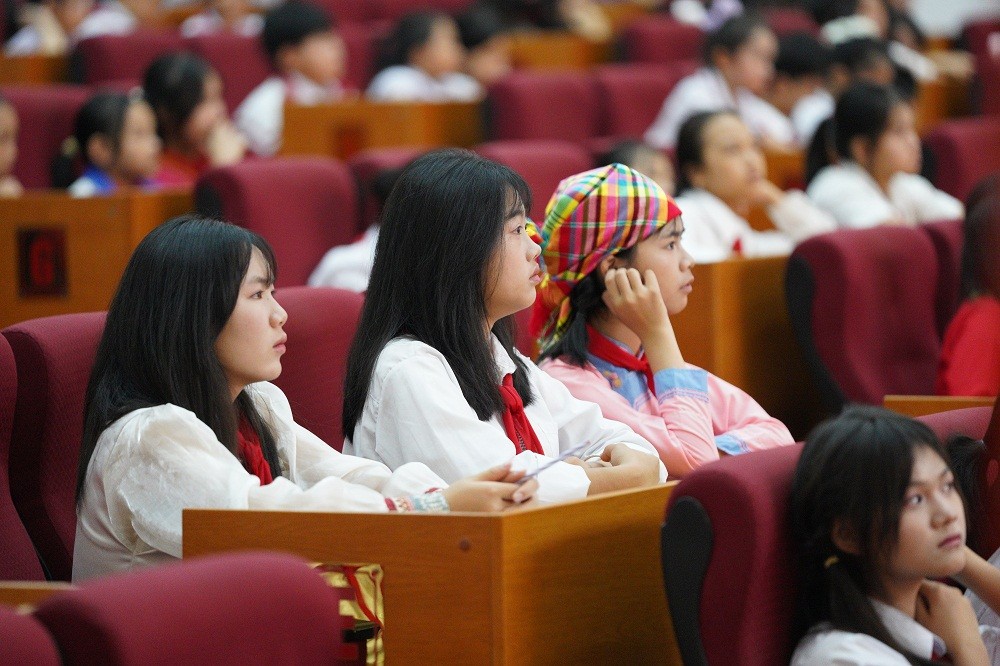 Viet's Home
Viet's Home
Lai Chau National Assembly, People's Council Delegates Hold Dialogue with Children
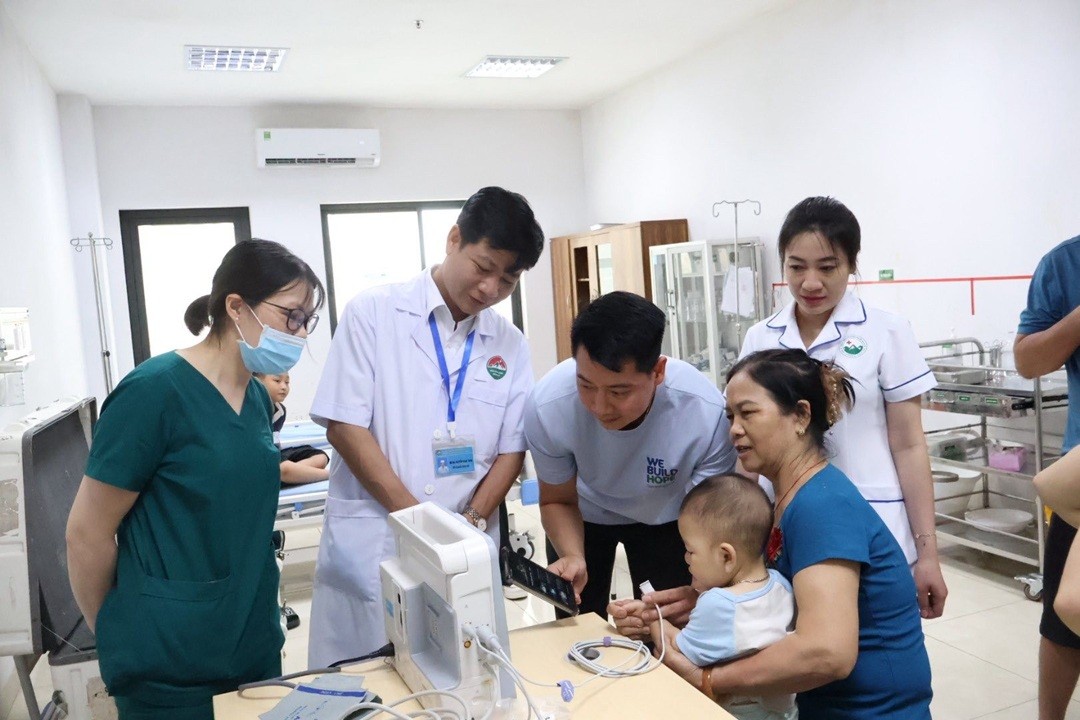 Viet's Home
Viet's Home
24 Children with Disabilities in Northern Provinces Received Free Surgery
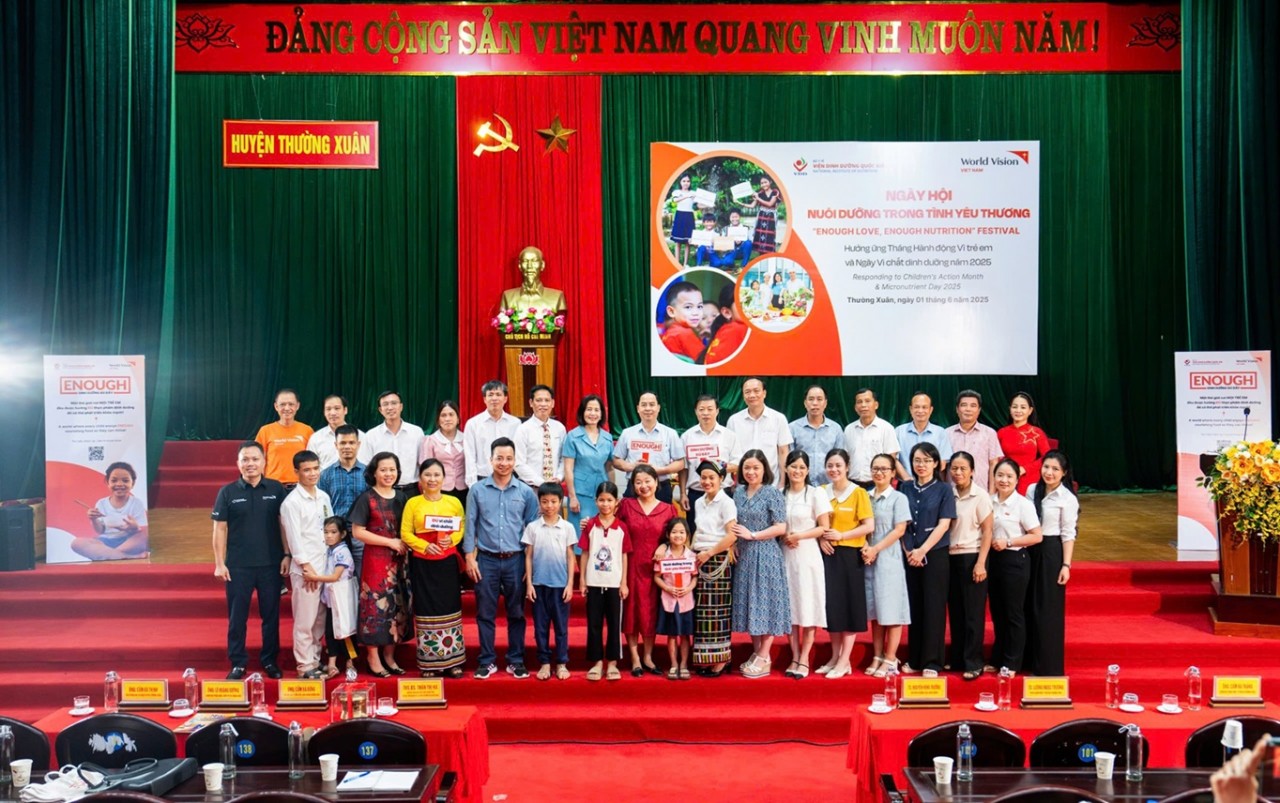 Viet's Home
Viet's Home
World Vision Promotes Comprehensive Nutritional Care for Vietnamese Children
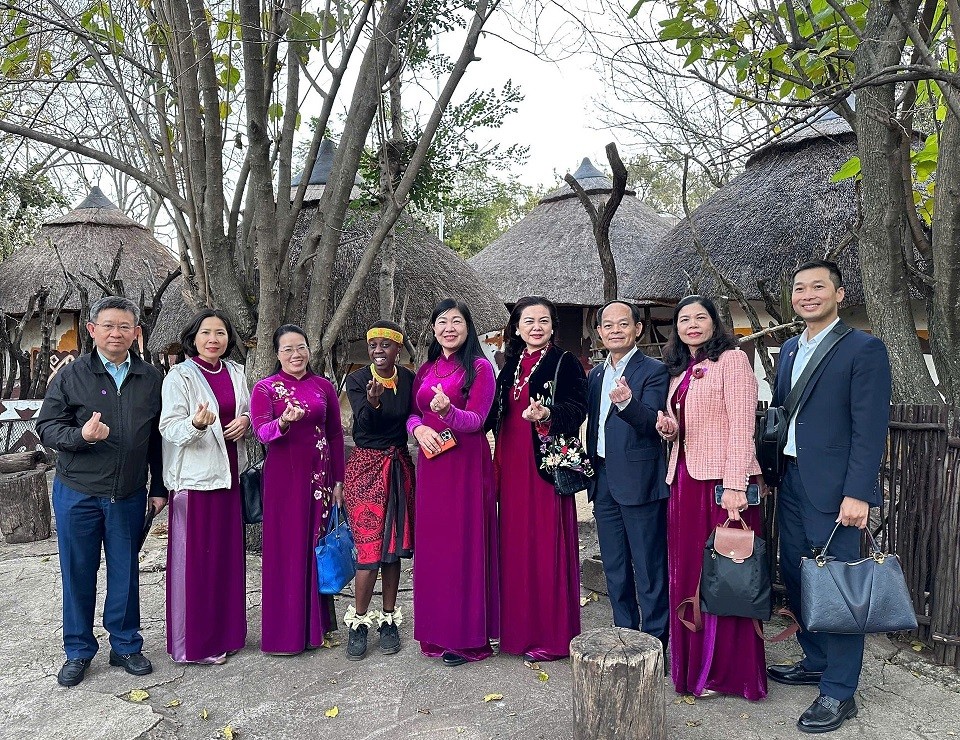 Viet's Home
Viet's Home
Hanoi, South Africa Strengthens People-to-people Exchanges, Expands Multi-sector Cooperation
 Viet's Home
Viet's Home
Hue City to Raise Awareness on Mine Accident Prevention
 Focus
Focus
Vietnam Leaves Imprints on the World Peacekeeping Map
 Viet's Home
Viet's Home
“Global Vietnamese Singing 2025” - Connecting Hearts Longing for Homeland
 Viet's Home
Viet's Home

